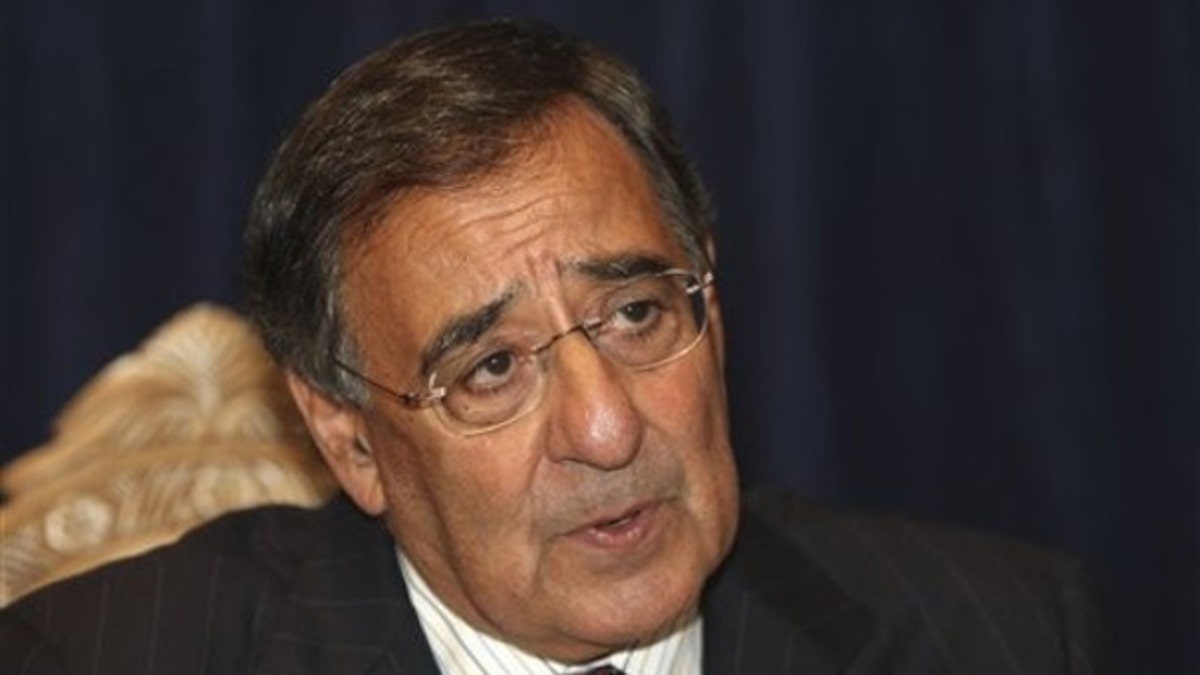
CIA Director Leon Panetta speaks at the Bint Jebail Cultural Center in Dearborn, Mich., Sept. 16, 2009. (AP Photo)
Leon, you're on your own.
CIA Director Leon Panetta is about to lose his top deputy -- a veteran official who's been his de facto bridge to the rest of the agency since he was brought on board to lead the CIA a year ago.
Stephen Kappes, a CIA legend who's been with the agency for nearly 30 years, plans to retire this May.
His departure leaves a void in the nation's intelligence community and leaves Panetta without any operational experience in the top tier of the agency. The man replacing Kappes, Mike Morell, is a top-ranking analyst who's been with the CIA as long as Kappes has. He held the No. 3 position from 2006 to 2008 and also was a presidential briefer -- he's not, however, a globetrotting operations guy like the outgoing deputy.
Because of Kappes' background, top U.S. senators had originally recommended him for the job of CIA director when the Obama administration took office last January. Officials like Senate Intelligence Committee Chairwoman Dianne Feinstein, D-Calif., were taken aback when President Obama instead chose CIA outsider Panetta -- they warmed to the pick, though, after insisting that Kappes serve as Panetta's deputy to guide him.
More than a year later, officials appear confident that Panetta and Morell can handle things from here - so far, the CIA director has weathered an internal probe of interrogators, criticism from House Speaker Nancy Pelosi, and one of the deadliest attacks on CIA personnel in agency history, the December base bombing in Khost, Afghanistan. The same senators who had concerns a year ago about Panetta seem comfortable with Kappes' replacement and confident in Panetta's leadership to date.
Bill Harlow, who served as CIA spokesman under George Tenet, said Kappes' departure is a "loss" for the agency, but that he likely sensed this was a safe time to step aside.
"(Kappes) probably feels that he's done what he needed to do," Harlow said.
A former senior intelligence official told Fox News that Obama personally intervened twice to persuade Kappes to stay in the job. The first time was in January 2009 during the transition. The second time was last fall.
Feinstein, in a statement released Wednesday, expressed no concerns about Kappes' departure.
She thanked him for his service, noting that she was supportive of his decision to stay on board during the transition and calling him a "great help and resource" for Panetta, but voiced confidence in Morell.
Panetta said in a statement that Kappes told him "a few months ago" that he was ready to leave.
Kappes has served across Europe and the Middle East with the agency and played a major role in CIA operations since the Sept. 11, 2001, terror attacks. He's overseen the Predator drone strikes in Pakistan and several other controversial programs. He also spearheaded talks in 2003 with Libyan leader Moammar Qadaffi that led to Libya agreeing to give up its weapons of mass destruction programs.
Kappes quit the agency in 2004 after a clash with former Director Porter Goss, but then returned under Michael Hayden.
Now that he's leaving again, there's some speculation in the press about whether he got tired of the CIA, or vice-versa. One congressional "source" told The Washington Post Kappes was disappointed by moves from the Obama administration to challenge the CIA's influence. In the past year, Attorney General Eric Holder appointed a special prosecutor to investigate interrogations; the Department of Justice released an internal report detailing allegations of harsh interrogation practices; and the administration formed a new unit for interrogating top terror suspects -- housing it at FBI headquarters.
But Harlow said he doubts the friction was a "motivating factor."
"Most everybody who had worked there was unhappy with the investigation (into CIA interrogations) but that's been going on for awhile," he said, adding that the "tea leaves" probably don't reveal an ulterior reason.
"He's earned the right to step away," Harlow said. "He's been there for a very long time."












































